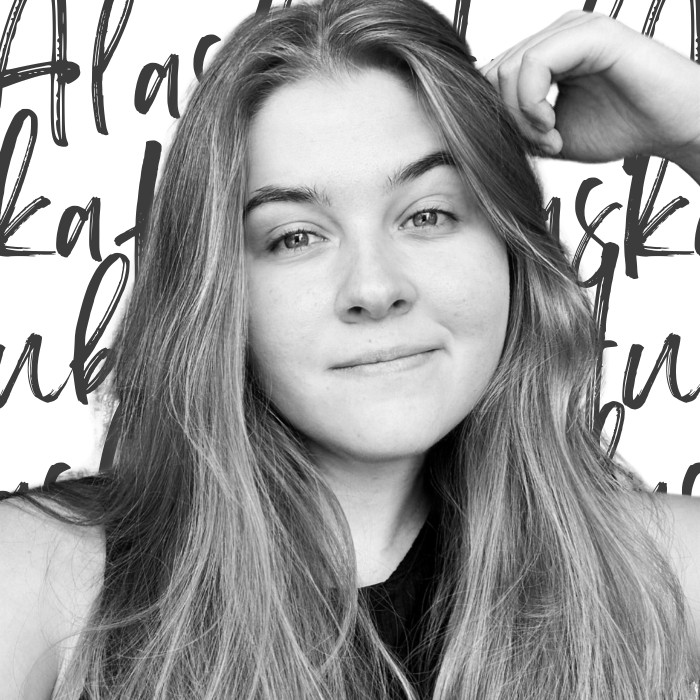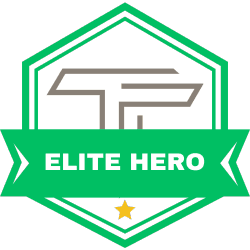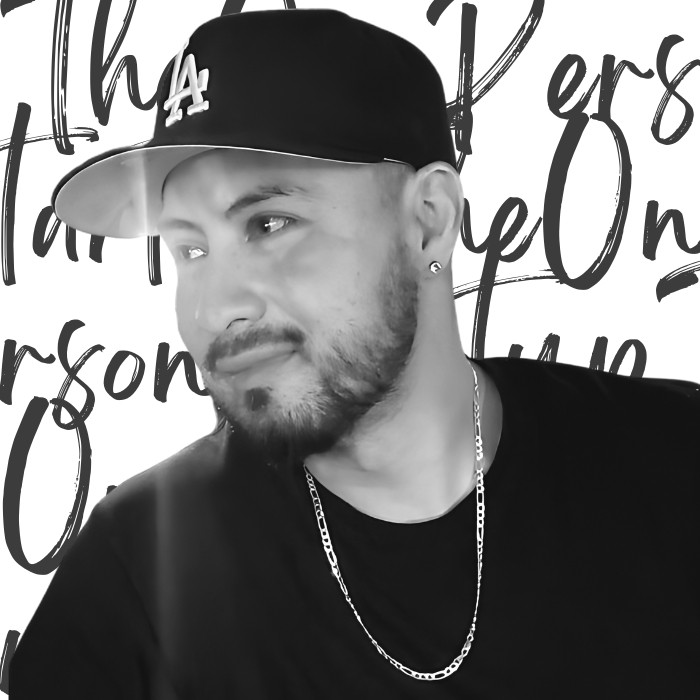Automate, Innovate, Elevate
Name
Alisa
Company
Alaska Hub
Since
2022



Path from Automation Developer to Digital Entrepreneur
Alisa's journey into the world of automation and digital entrepreneurship began six years ago with an unexpected visit to HP's open-doors event, sparking her passion for automation. Her love for automation deepened as she worked as an Automation Developer and later joined a startup where she discovered Notion, transforming her approach to organizing and documenting her work. Alisa's entrepreneurial spirit drove her to explore various income streams, ultimately leading her to sell Notion templates on Etsy, capitalizing on a market gap for aesthetically pleasing yet functional templates.
Alisa emphasizes the importance of leveraging tools like Canva, Make, Zapier, and Bubble, which are instrumental in her business operations. She built her initial customer base through strategic promotion on platforms like Facebook, Reddit, and Pinterest while maintaining her full-time job to ensure financial stability. Reflecting on her journey, Alisa advises aspiring entrepreneurs to focus on their strengths, maintain consistency, and prioritize mental and physical health. She debunks the myth of quick success in digital business, stressing the necessity of hard work, patience, and resilience in achieving long-term entrepreneurial success.
Can you tell us a bit about your background and how it led you to where you are now?
It all started six years ago when I decided to skip a lecture at my university and instead attended an open-doors day at HP, where they were looking for interns for the Robotics Process Automation team.
From that moment, I fell in love with automation and have been working as an Automation Developer ever since. A little over two years ago, I joined a startup where I was introduced to Notion, as we were using it as our internal tool to manage nearly all aspects of our business.
At first, I was skeptical about it, as I am not someone who is used to detailed documentation – I keep most of my thoughts in my head. But then I tried it out in my private time and discovered the formulas and integrations that come with Notion, and that's when I fell in love for the second time (sorry, automation).
What inspired you to start your business?
I've always been looking for additional sources of income — everything from creating Canva templates to creating courses on Udemy to reselling CS:GO skins. However, I noticed that a lot of people sell Notion templates on Etsy, and I thought, "Why not try it as well?"
One of the best decisions I’ve ever made.
Were there any particular market trends or gaps you noticed that influenced your decision to start this business?
Back in 2022 when I started, the market was not as saturated as it is currently – there was an obvious lack of helpful yet aesthetic templates. Many templates were either useful or attractive, but I believed I could create ones that were both visually appealing and functional.
There was a strong trend for aesthetics like Dark Academia, Anime, and Boho, so I created Student Planners in all those styles. Conveniently, it was around September, the time when students start school and university.
What tools do you use for your business?
I wouldn't live a day of my life without Canva. I think I've been using it every single day for the past seven years – best tool ever. For automations, I build everything in Make or Zapier, or in Bardeen for data scraping.
I recently also started to build my new project, Directory Hub, in Framer, but I'm also a big fan of Bubble! I love discovering and trying out all kinds of No Code tools.
How did you acquire your first customers?
I first started selling templates on Etsy, as it is mostly used to buy aesthetic templates. To attract customers, I published templates in Facebook groups, on Reddit and on Pinterest - these I recommend to everyone.
How did you fund your Digital Business initially?
I'm continuously working at my full-time job, so I have to work both 9-5 and 5-9. It's not easy, but it gives me the possibility to try out new things and directions without worrying about my financial situation.
I definitely do not encourage you to quit your full-time job until you gain a stable income with your side hustle. It's just not worth the stress and pressure it would put you under.
Is there anything you would do differently if you could go back and start over?
I had my ups and downs with Twitter - it wasn't easy for me to stay consistent. After a year or so, I actually stopped posting for a while and lost momentum. I would definitely spend more time building my presence and avoid taking breaks. However, I learn from my mistakes and try to be as consistent as I can.
What advice would you give to someone who is just starting out as an entrepreneur?
Don't compare yourself to others. I know it sounds trivial, but this can distract your focus. Focus on your own path, not someone else's.
And don't forget to spend time on your physical and mental health — your energy levels will heavily affect your ability to create and build.
Is there any particular mindset or approach that you believe is crucial for entrepreneurial success?
Focus on your strengths, don't try to do what everyone else is doing. What are your skills? What is your experience? What makes you special? Leverage that to find your niche and excel in it.
Stay true to yourself and be kind to people you meet along the way – you never know when those connections might lead to unexpected opportunities or support.
What are some common misconceptions about starting a business that you'd like to address?
I physically roll my eyes every time I see a tweet stating something like "This is how to print money with ChatGPT in 3 easy steps." There are no easy steps in building your digital business. If you achieve success quickly, you are either lucky or had a brilliant idea.
You don't need a brilliant idea to get rich, you just need a decent one and a lot of courage.
And a lot of work and patience.
Other Stories
© Copyright 2024 All rights Reserved.
© Copyright 2024 All rights Reserved.
Automate, Innovate, Elevate
Name
Alisa
Company
Alaska Hub
Since
2022



Path from Automation Developer to Digital Entrepreneur
Alisa's journey into the world of automation and digital entrepreneurship began six years ago with an unexpected visit to HP's open-doors event, sparking her passion for automation. Her love for automation deepened as she worked as an Automation Developer and later joined a startup where she discovered Notion, transforming her approach to organizing and documenting her work. Alisa's entrepreneurial spirit drove her to explore various income streams, ultimately leading her to sell Notion templates on Etsy, capitalizing on a market gap for aesthetically pleasing yet functional templates.
Alisa emphasizes the importance of leveraging tools like Canva, Make, Zapier, and Bubble, which are instrumental in her business operations. She built her initial customer base through strategic promotion on platforms like Facebook, Reddit, and Pinterest while maintaining her full-time job to ensure financial stability. Reflecting on her journey, Alisa advises aspiring entrepreneurs to focus on their strengths, maintain consistency, and prioritize mental and physical health. She debunks the myth of quick success in digital business, stressing the necessity of hard work, patience, and resilience in achieving long-term entrepreneurial success.
Can you tell us a bit about your background and how it led you to where you are now?
It all started six years ago when I decided to skip a lecture at my university and instead attended an open-doors day at HP, where they were looking for interns for the Robotics Process Automation team.
From that moment, I fell in love with automation and have been working as an Automation Developer ever since. A little over two years ago, I joined a startup where I was introduced to Notion, as we were using it as our internal tool to manage nearly all aspects of our business.
At first, I was skeptical about it, as I am not someone who is used to detailed documentation – I keep most of my thoughts in my head. But then I tried it out in my private time and discovered the formulas and integrations that come with Notion, and that's when I fell in love for the second time (sorry, automation).
What inspired you to start your business?
I've always been looking for additional sources of income — everything from creating Canva templates to creating courses on Udemy to reselling CS:GO skins. However, I noticed that a lot of people sell Notion templates on Etsy, and I thought, "Why not try it as well?"
One of the best decisions I’ve ever made.
Were there any particular market trends or gaps you noticed that influenced your decision to start this business?
Back in 2022 when I started, the market was not as saturated as it is currently – there was an obvious lack of helpful yet aesthetic templates. Many templates were either useful or attractive, but I believed I could create ones that were both visually appealing and functional.
There was a strong trend for aesthetics like Dark Academia, Anime, and Boho, so I created Student Planners in all those styles. Conveniently, it was around September, the time when students start school and university.
What tools do you use for your business?
I wouldn't live a day of my life without Canva. I think I've been using it every single day for the past seven years – best tool ever. For automations, I build everything in Make or Zapier, or in Bardeen for data scraping.
I recently also started to build my new project, Directory Hub, in Framer, but I'm also a big fan of Bubble! I love discovering and trying out all kinds of No Code tools.
How did you acquire your first customers?
I first started selling templates on Etsy, as it is mostly used to buy aesthetic templates. To attract customers, I published templates in Facebook groups, on Reddit and on Pinterest - these I recommend to everyone.
How did you fund your Digital Business initially?
I'm continuously working at my full-time job, so I have to work both 9-5 and 5-9. It's not easy, but it gives me the possibility to try out new things and directions without worrying about my financial situation.
I definitely do not encourage you to quit your full-time job until you gain a stable income with your side hustle. It's just not worth the stress and pressure it would put you under.
Is there anything you would do differently if you could go back and start over?
I had my ups and downs with Twitter - it wasn't easy for me to stay consistent. After a year or so, I actually stopped posting for a while and lost momentum. I would definitely spend more time building my presence and avoid taking breaks. However, I learn from my mistakes and try to be as consistent as I can.
What advice would you give to someone who is just starting out as an entrepreneur?
Don't compare yourself to others. I know it sounds trivial, but this can distract your focus. Focus on your own path, not someone else's.
And don't forget to spend time on your physical and mental health — your energy levels will heavily affect your ability to create and build.
Is there any particular mindset or approach that you believe is crucial for entrepreneurial success?
Focus on your strengths, don't try to do what everyone else is doing. What are your skills? What is your experience? What makes you special? Leverage that to find your niche and excel in it.
Stay true to yourself and be kind to people you meet along the way – you never know when those connections might lead to unexpected opportunities or support.
What are some common misconceptions about starting a business that you'd like to address?
I physically roll my eyes every time I see a tweet stating something like "This is how to print money with ChatGPT in 3 easy steps." There are no easy steps in building your digital business. If you achieve success quickly, you are either lucky or had a brilliant idea.
You don't need a brilliant idea to get rich, you just need a decent one and a lot of courage.
And a lot of work and patience.
Other Stories
© Copyright 2024 All rights Reserved.
© Copyright 2024 All rights Reserved.
Automate, Innovate, Elevate

Path from Automation Developer to Digital Entrepreneur
Alisa's journey into the world of automation and digital entrepreneurship began six years ago with an unexpected visit to HP's open-doors event, sparking her passion for automation. Her love for automation deepened as she worked as an Automation Developer and later joined a startup where she discovered Notion, transforming her approach to organizing and documenting her work. Alisa's entrepreneurial spirit drove her to explore various income streams, ultimately leading her to sell Notion templates on Etsy, capitalizing on a market gap for aesthetically pleasing yet functional templates.
Alisa emphasizes the importance of leveraging tools like Canva, Make, Zapier, and Bubble, which are instrumental in her business operations. She built her initial customer base through strategic promotion on platforms like Facebook, Reddit, and Pinterest while maintaining her full-time job to ensure financial stability. Reflecting on her journey, Alisa advises aspiring entrepreneurs to focus on their strengths, maintain consistency, and prioritize mental and physical health. She debunks the myth of quick success in digital business, stressing the necessity of hard work, patience, and resilience in achieving long-term entrepreneurial success.
Can you tell us a bit about your background and how it led you to where you are now?
It all started six years ago when I decided to skip a lecture at my university and instead attended an open-doors day at HP, where they were looking for interns for the Robotics Process Automation team.
From that moment, I fell in love with automation and have been working as an Automation Developer ever since. A little over two years ago, I joined a startup where I was introduced to Notion, as we were using it as our internal tool to manage nearly all aspects of our business.
At first, I was skeptical about it, as I am not someone who is used to detailed documentation – I keep most of my thoughts in my head. But then I tried it out in my private time and discovered the formulas and integrations that come with Notion, and that's when I fell in love for the second time (sorry, automation).
What inspired you to start your business?
I've always been looking for additional sources of income — everything from creating Canva templates to creating courses on Udemy to reselling CS:GO skins. However, I noticed that a lot of people sell Notion templates on Etsy, and I thought, "Why not try it as well?"
One of the best decisions I’ve ever made.
Were there any particular market trends or gaps you noticed that influenced your decision to start this business?
Back in 2022 when I started, the market was not as saturated as it is currently – there was an obvious lack of helpful yet aesthetic templates. Many templates were either useful or attractive, but I believed I could create ones that were both visually appealing and functional.
There was a strong trend for aesthetics like Dark Academia, Anime, and Boho, so I created Student Planners in all those styles. Conveniently, it was around September, the time when students start school and university.
What tools do you use for your business?
I wouldn't live a day of my life without Canva. I think I've been using it every single day for the past seven years – best tool ever. For automations, I build everything in Make or Zapier, or in Bardeen for data scraping.
I recently also started to build my new project, Directory Hub, in Framer, but I'm also a big fan of Bubble! I love discovering and trying out all kinds of No Code tools.
How did you acquire your first customers?
I first started selling templates on Etsy, as it is mostly used to buy aesthetic templates. To attract customers, I published templates in Facebook groups, on Reddit and on Pinterest - these I recommend to everyone.
How did you fund your Digital Business initially?
I'm continuously working at my full-time job, so I have to work both 9-5 and 5-9. It's not easy, but it gives me the possibility to try out new things and directions without worrying about my financial situation.
I definitely do not encourage you to quit your full-time job until you gain a stable income with your side hustle. It's just not worth the stress and pressure it would put you under.
Is there anything you would do differently if you could go back and start over?
I had my ups and downs with Twitter - it wasn't easy for me to stay consistent. After a year or so, I actually stopped posting for a while and lost momentum. I would definitely spend more time building my presence and avoid taking breaks. However, I learn from my mistakes and try to be as consistent as I can.
What advice would you give to someone who is just starting out as an entrepreneur?
Don't compare yourself to others. I know it sounds trivial, but this can distract your focus. Focus on your own path, not someone else's.
And don't forget to spend time on your physical and mental health — your energy levels will heavily affect your ability to create and build.
Is there any particular mindset or approach that you believe is crucial for entrepreneurial success?
Focus on your strengths, don't try to do what everyone else is doing. What are your skills? What is your experience? What makes you special? Leverage that to find your niche and excel in it.
Stay true to yourself and be kind to people you meet along the way – you never know when those connections might lead to unexpected opportunities or support.
What are some common misconceptions about starting a business that you'd like to address?
I physically roll my eyes every time I see a tweet stating something like "This is how to print money with ChatGPT in 3 easy steps." There are no easy steps in building your digital business. If you achieve success quickly, you are either lucky or had a brilliant idea.
You don't need a brilliant idea to get rich, you just need a decent one and a lot of courage.
And a lot of work and patience.
Name
Alisa
Company
Alaska Hub
Since
2022

Other Stories
© Copyright 2024 All rights Reserved.



